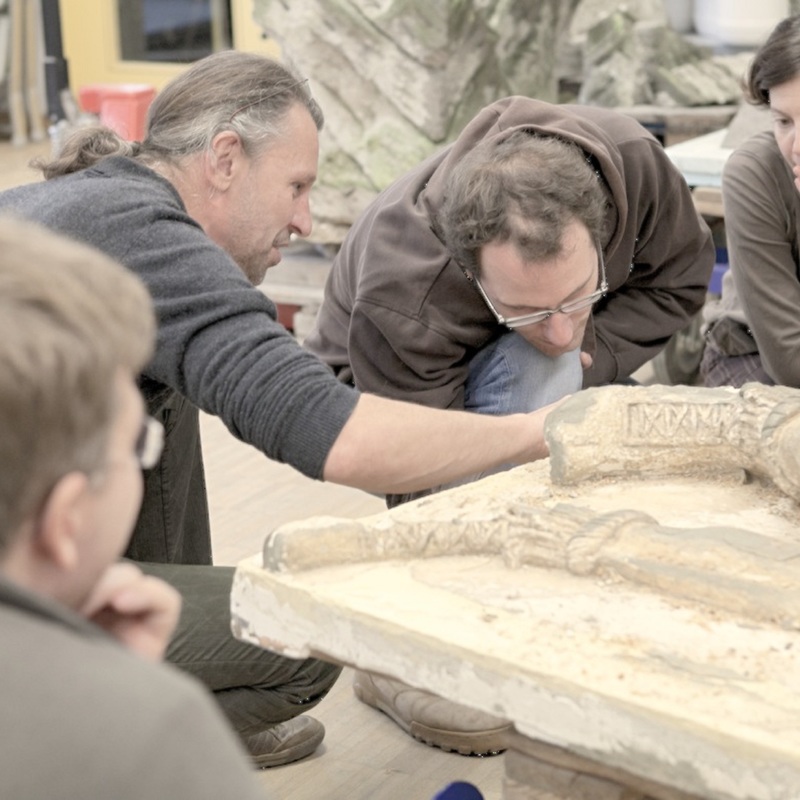Search
Weltpolitikfähigkeit - The Ability of World Politics
DOI: 10.17160/josha.7.5.714
This is a subjective lecture by a disenchanted European, a disappointed transatlantic - and, I am exaggerating slightly, an admirer of Chinese culture and its history. Globally seen; China has achieved the greatest poverty reduction in human history.
black & white
DOI: 10.17160/josha.7.5.712
In a perfect world people, regardless of their skin color, would live next to each other peacefully – in a country, in a city, in a neighborhood, on one street. Sadly this story from Detroit, Michigan shows that racism still is a major structural problem in daily life. https://brittamachtblau.de/?m=201805
Sport in der Ganztagsschule - Sports in full day Schools
DOI: 10.17160/josha.7.4.708
PISA 2001 revealed that German students are missing several competencies in reading, writing and math. The students social background was one main reason for such inadequacies. The following questions arise: “Which actions should be initiated to prevent such outcomes?”, “Do physical activations generally influence pupils learning development?”, “Which benefits has sports in full-day schools?” Those are some of the questions which this paper tries to find answers to.
"Sie sitzen daheim und denken sich Geschichten aus". The Representation of Authorship in Daniel Kehlmann's Literary Works
DOI: 10.17160/josha.7.4.707
Daniel Kehlmann is considered one of the major writers not only of the German-language book market. His best seller Measuring the World has been translated into over forty languages, the novel Tyll is soon to be a Netflix series. Based on the assumption that writer figures can contribute to the reflection about literature and the relation between author, narrator and characters, this thesis examines the representation of authorship in Kehlmann’s literary works. Tracing the most common concepts of authorship, the text explores Kehlmann’s ways of portraying literary production and compares them with his own poetological statements. In this context, it also gives insights into Kehlmann’s handling of metafiction and intertextuality and demonstrates in which ways the dualism of reality and fiction affects the genesis of authorship.
Nochmal: Rückforderung von Berufungs-Leistungsbezügen wegen vorzeitigem Wechsel der Hochschule - Once again: Reclaim of appellate benefits
DOI: 10.17160/josha.7.4.704
It is still a relatively new phenomenon that universities are demanding that professors who have left the university after a relatively short period of time due to an external call return their appointment benefits. Previously published in ODW Issue 02/2020 / Volume 2020 https://ordnungderwissenschaft.de/wp-content/uploads/2020/03/06_Wertheimer.pdf
Demetrios Award 2020
DOI: 10.17160/josha.7.2.662
The JOSHA Team is very pleased to share information with you about our Demetrios Prize 2020. The International Academy of Sciences, Humanities, and Arts (IASHA e.V.), with the support of the BioThera-Roland Mertelsmann Foundation, will award three prizes of 500 euros for the categories BACHELOR, MASTER and DOCTOR THESIS. Our editors will make the selection and the theses of the winners will be published in JOSHA and can be referenced with their DOI number! The “Journal of Science, Humanities, and Arts – JOSHA” has been initiated to create a novel internet platform to access the broad diversity of important discoveries and creativity in the fields of Science, Humanities, and Arts. At JOSHA we believe, that "Knowledge that is not communicated is wasted knowledge".
Die Änderung von Chefarztverträgen - The Change of Chief Physician Contracts
DOI: 10.17160/josha.7.2.655
Due to their integration into a state planning and financing system, which is subject to frequent changes, hospitals require a high degree of flexibility to be able to provide cost-effective health care in the long term. This forces recurrent organizational changes in the organization, which can also have an impact on the activities of the chief physicians working there. Such changes can result, for example, from the progressive shift from inpatient to outpatient services, mergers entail other organizational concepts and can have consequences concerning the place of work. Furthermore, chief physicians may have to give up beds when centers are formed. Government regulations for minimum quantities can force reductions in services, and a new medical concept decided on by the hospital management can also lead to a change in the allocation of service provision. Previously published in: OdW BB 2019, 1076, https://ordnungderwissenschaft.de/
Paul Schempps Streit mit dem Oberkirchenrat
DOI: 10.17160/josha.7.2.654
The article describes the canonical fight between pugnacious Protestant pastor Paul Schempp and the bishop of the Protestant regional church in Stuttgart. Paul Schempp, who was born on January 4th, 1900, was dismissed from his position as a teacher of religion at the beginning of the Nazi era after having declared that, one now had to pay attention that the gospel of the Kingdom of God would not suddenly become a gospel of the Third Reich. He then became a priest in Iptingen in Württemberg from 1933 to 1942. His dispute with the bishop concerned, on the one hand, the internal church constitution. He rejected the forced collection of church taxes as unevangelical. On the other hand, he vehemently opposed, in word and writing, the arrangement of his regional church with the Nazi government. In particular, he strictly rejected the planned oath of allegiance to Adolf Hitler. Thereby He also sharply attacked the bishop personally. In 1942, he eventually left the Protestant regional church.
Der Mensch ist der Mikrobe egal - Man does not care about the microbe
DOI: 10.17160/josha.7.2.647
"Humans don't care about microbes - we would do well to see illness more as an ecological problem".Eduard Kaeser is a physicist and graduated philosopher born in 1948 in Bern, Switzerland. Thematically, his writing revolves around two centres of gravity: the possibility of anthropology - a humanly possible life - in a world of devices; and the possibility of a liveable universalism in a multiculturally fragmented world (book publication planned: Über interkulturelle Zivilisiertheit). He works as a teacher, freelance publicist, and jazz musician. 2018 has been published by Schwabe-Verlag: "Trojan horses of our time. Critical Essays on Digitalization".
Learning by Research – A First Résumé. Forschendes Lernen - eine erste Bilanz
DOI: 10.17160/josha.7.2.640
Today, many decisions in politics and economy rely on statistics, scientific reports and market research. However, how reliable are those results of research? This issue, we are able to assess best if we have performed research ourselves. On this note, learning by research should revolutionize academic teaching: Learning by self-contained and independent research. This principle, not only students and graduates but also universities have to arrange for. This article offers an overview of the concept and implementation of learning by research. Kontakt: harald.mieg@hu-berlin.de; Foto: Henrik Hagedorn









